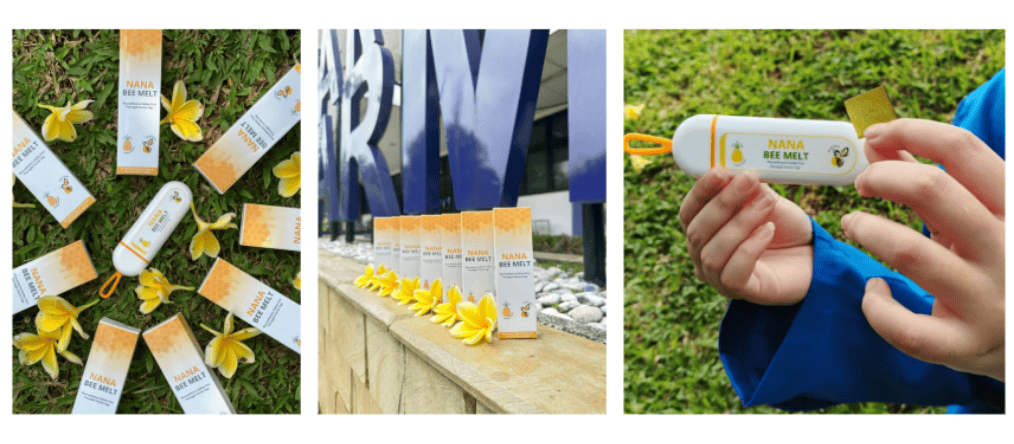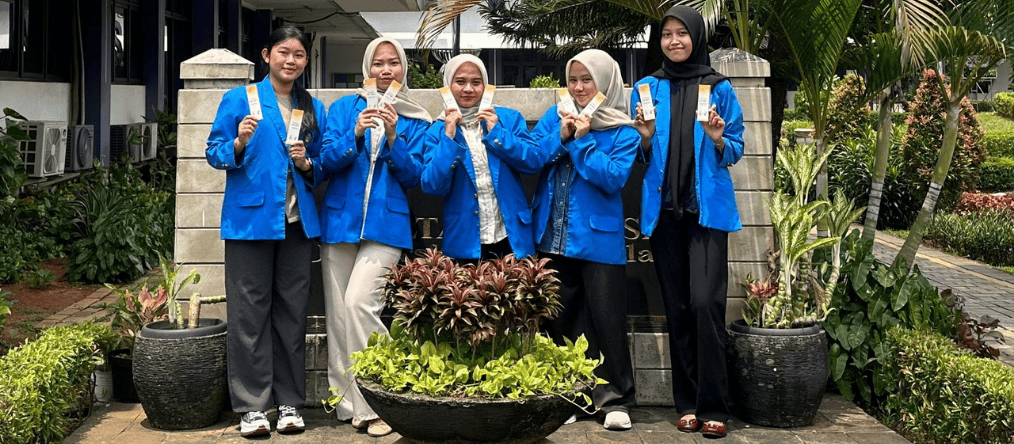Jakarta — Five students from the Faculty of Pharmacy at Universitas Pancasila, have successfully created a unique natural-based innovation in the form of a Mucoadhesive Edible Film, a combination of Tetragonula laeviceps propolis extract and pineapple peel (Ananas comosus) as an alternative to prevent dental caries. This innovation is not only environmentally friendly but also supports the achievement of Sustainable Development Goals (SDGs) point 3: Good Health and Well-being. This research was developed through the Student Creativity Program for Exact Research (PKM-RE) and successfully received funding from the Ministry of Higher Education, Science, and Technology (Kemdiktisaintek).
Accompanied by the supervising lecturer apt. Diah Kartika Pratami, M.Farm., the research team consists of team leader Diah Nurul Qolbi Salasatun (2022210236) and team members Zulfa Alia Mukhtar (2022210248), Davina Safitri (2022210249), Kelly (2022210250), and Shelomita Juriah Nurazis (2023210180).
“We want to present a safe and easy-to-use natural solution to prevent tooth decay, especially among Indonesians where the incidence is still high,” said Diah Nurul, head of the research team.
Dental caries is one of the most common oral health problems in Indonesia, caused by the activity of Streptococcus mutans bacteria, which damages tooth enamel through acid production. This is where this idea was born.

Tetragonula laeviceps propolis extract is known to be rich in flavonoids and phenolics, as well as high antibacterial activity against microorganisms that cause tooth decay. Meanwhile, the pineapple peel extract used in this study has been shown to have significant potential due to its bromelain content, a natural proteolytic enzyme that can inhibit bacterial growth and biofilm formation while supporting propolis’ antibacterial effects.
The combination of these two ingredients is then formulated into a thin film that can stick to the oral mucosa (mucoadhesive edible film), so that the active compounds can be released slowly in the oral cavity to provide optimal protection against tooth decay.
The Dean of FFUP, Prof. Dr. apt. Syamsudin, M.Biomed., expressed his high appreciation for the creativity and concern of the students who are members of this innovative Student Creativity Program (PKM) team.
“I truly appreciate the enthusiasm of the students who have been able to integrate the potential of Indonesian natural ingredients like propolis and pineapple peel into innovative products that benefit the community. Dental caries remains a significant health problem, and prevention efforts through natural approaches like this deserve support and development,” he said.
The Head of the Undergraduate Study Program, Prof. Dr. apt. Esti Mumpuni, M.Si., added that PKM activities such as this are an important platform for training students to think scientifically, innovate, and produce work that has a direct impact on society. The study program, she continued, will continue to provide full support for student research and development activities, especially those oriented towards innovation based on local wisdom and applied science.
Through a series of research stages, starting with the natural ingredient extraction process, extract quality parameters, preparation formulation, preparation evaluation, determination of flavonoid and total phenolic content, antibacterial activity testing, compound identification using LC-MS/MS, and hedonic testing of panelist acceptance, the results showed that the combination of propolis and pineapple peel extracts offers synergistic potential in inhibiting the growth of Streptococcus mutans bacteria and contains 10 compounds that function as oral hygiene products. This innovation also supports the utilization of propolis and pineapple peel waste for added value.
This innovation is clear evidence that students of the Faculty of Pharmacy, Universitas Pancasila, are actively participating in developing health products that utilize natural ingredients and support environmental sustainability.


